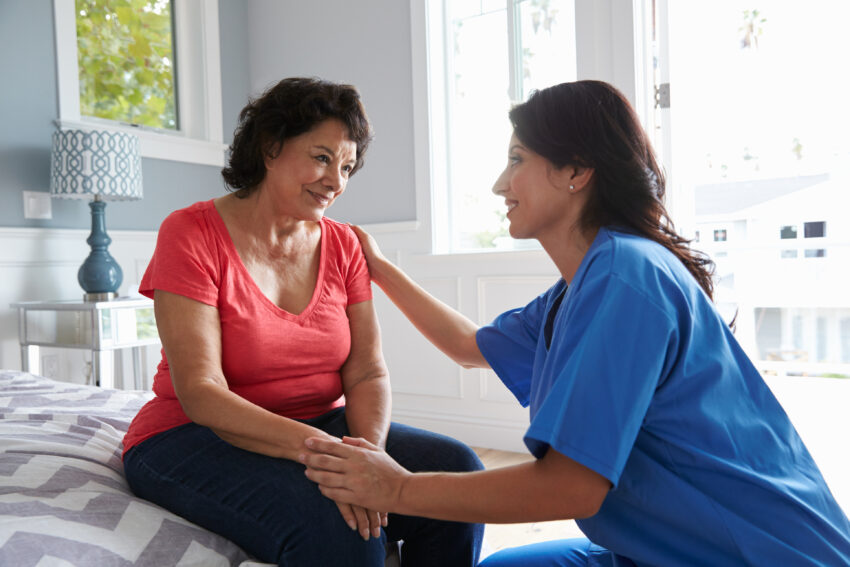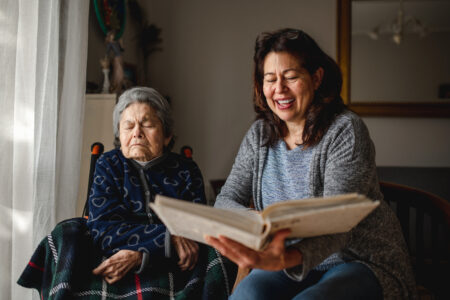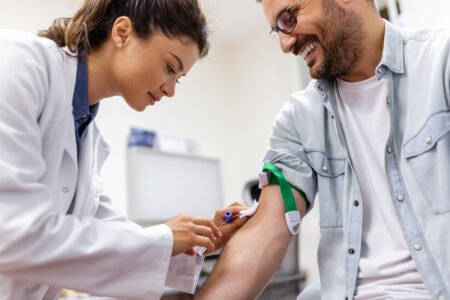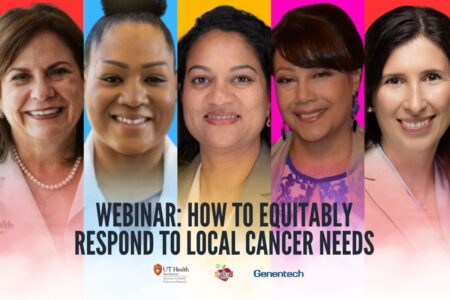
Share On Social!
Researchers at Texas Tech University are interested in learning more about you and your family caregiver’s experience with advanced cancer.
The research team is seeking participation from people who are 18 or older, speak English, identify as Latino or non-Hispanic White, and have been diagnosed with advanced cancer (stages 3b-4).
Caregivers who want to participate must be 18 years or older, speak English, and identify as Latino or non-Hispanic White.
If you or your loved one meets these qualifications, you may be eligible to take part in this study, which consists of three different surveys.
These surveys will be spaced out and take 30 to 45 minutes to complete, and can be done online, by mail, or over the phone with the help of a research assistant.
The first will be given at the time you consent to participate. The second one will be administered one month later, and the final one will be provided 3 months at a follow-up.
You will receive $25 for every survey you complete, for a total of $75.
To find out if this study is a good fit for you, please fill out this short screener, and a member of the “Examining Racial-Ethnic Disparities and Pre-Death Grief Among Persons with Advanced Cancer and Their Family Caregivers” study team will follow up within a week.
If you have any questions before participating, please call Carol Fadalla at (806) 834-3959 or email at cfadalla@ttu.edu.
Increasing Latino Participation in Clinical Trials
Latinos continue to be one of the most underrepresented groups in clinical research.
Clinical trials are studies conducted using volunteers that help researchers learn how to slow, manage, and treat diseases, such as different types of cancer.
As of 2019, Latinos made up 10% of National Cancer Institute clinical trial participation and 4% of FDA drug trials.

Without Latino representation in clinical trials, Latinos may not reap the benefits and outcomes of studies that deal with diseases like advanced cancer.
Dr. Amelie G. Ramirez, director of Salud America! at the Institute for Health Promotion Research at UT Health San Antonio, is working hard to increase Latino participation in cancer and Alzheimer’s clinical trials, with help from Genentech, a member of the Roche Group.
“With more Latino volunteers for clinical trials, researchers would have greater opportunity to find better prevention and treatments for diseases that affect this population,” Ramirez said.
She is using Salud America! to raise awareness about open clinical trials , uplift the stories of Latinos who have volunteered for a trial, and host webinars.
One of the latest webinars aims to address health equity by discussing “How to Identify and Equitably Respond to Local Cancer Needs.”
The webinar is set for 10 a.m. Central on Thursday, April 25, 2024.
To learn more, visit the Salud America! clinical trials page.
In San Antonio, search the Mays Cancer Center at UT Health San Antonio’s Find a Clinical Trial database to learn more about available clinical trials and eligibility requirements.
Making a Difference from Afar
One of the biggest barriers to Latino participation in registries, research programs, and clinical trials is the lack of convenience.
Many of these research opportunities require a lot of time and the means to travel.
Some Latinos may not have reliable transportation, the finances to support a long-term stay to participate, or may suffer ill effects from their disease or treatment that prevents them from giving their time.
That’s why opportunities such as these are so important.
Another opportunity available for Latinos looking to make a positive impact in health research is the National Institutes of Health’s All of Us Research Program.
The All of Us Research Program is a historical effort to collect the diverse health stories and experiences of over one million Americans.
The collected data goes into a large database that can be shared with researchers who share the mutual belief that research should reflect everyone.
In fact, the diversity of the data that has come out of the program has revealed 275 million new genetic variants.
Besides supplying measurements and a bio sample with a one-time, quick visit to your local blood bank, participation in the All of Us Research Program can be done online from the comfort of your own home.
Those living in The Alamo City who are interested in learning more about the All of Us Research Program can visit their website in English or Spanish. You can also sign up nationally.
Explore More:
Clinical TrialsBy The Numbers
10
Percent
of clinical trial participants are Latinos



